
Third in a series of articles focused on the candidate experience, this article by Mary Scott addresses how execution, authenticity, and the candidate experience shape the employer’s campus brand.

The traditional office visit has evolved into an opportunity for an organization to give job candidates a glimpse into its culture and a vision for the candidates’ career there.

In-person activities are the most widely used and effective means for recruiting interns, according to results of NACE’s 2025 Internship & Co-op survey.

More than 70% of organizations expect to increase or maintain intern hiring, according to NACE’s 2025 Internship & Co-op Report. However, overall intern hiring is expected to fall 3.1%.
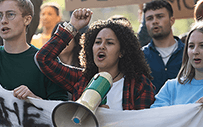
The political and social unrest seen on college campuses last spring and that may potentially reignite this fall has little impact on college recruiting, according to results of a recent NACE quick poll.

NACE is conducting a quick poll and would like your input to assess ways that campus recruiting may be impacted. Last spring, we saw increased campus protests and lockdowns in response to student activism. As we prepare for the fall semester and campus recruiting, there is a potential for increased campus unrest in response to global and national events (i.e. Presidential election, war in Middle East). This Quick Poll is intended to get an overall understanding of the ways university recruiters and campus career centers are preparing for possible campus unrest related to the recruiting process.

The employer winner of the 2024 NACE Technology Excellence Award, Freese and Nichols implemented talent acquisition platform Yello and modified its roles and processes related to its on-campus career fair strategy to significantly increase its university hiring.

Landmark College, an institution exclusively for students who learn differently including those on the autism spectrum, champions a strengths-based model and gives students the skills and strategies they need to achieve their goals.

Because Liberty Mutual Insurance hires hundreds of interns a year, it equips interns with a wide range of skills and has the skill profile of an intern closely align with its early career roles to prepare interns for potential future full-time roles.

Visa’s internship program is designed to build full-time conversion and provide an exceptional experience for incoming talent. Phill Haig, Visa’s director of early career programs, says Visa’s target conversion rate has been 70%.

When it comes to the attributes of a job and an organization and the benefits the organization offers, there are some differences in student preferences by race and gender.

Women remain underrepresented in computer science majors and careers. Two researchers conducted a study to see how women in computing experience and make sense of their internships, and how their internship experiences shape their future career plans.

Visa has found that hiring diverse talent is easier to accomplish the earlier it can engage students and it helps create a network of brand evangelists who are able to advocate for Visa on campus.

To foster a truly diverse and inclusive workplace, employers should expand their DEI efforts to encompass what is increasingly being referred to as DEIA—or diversity, equity, inclusion, and accessibility.

As October is National Disability Employment Awareness Month, several organization offer resources about disability inclusion for employers and career services offices to use now and throughout the year.

The Williams Companies evaluates talent for internships based on the NACE Career Readiness Competencies, focusing on the competencies where it has seen gaps in its intern class.

Last year, Progressive Insurance achieved an intern conversion rate of 91%, far exceeding the overall conversion rate of 57.6% for 2021-22.

As we enter the new school and recruiting season, NACE is conducting a Fall Quick Poll. The focus of our poll is on two important issues– the impact the end of Affirmative Action is having on our work and state of unpaid internships.

Some of the rewarding aspects of being a URR professional include changing people’s lives and providing a seat at the table for many who may not have been historically represented.
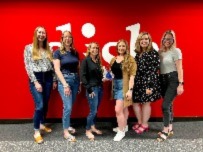
The large-employer winner of the 2023 NACE Award for Recruiting Excellence, DISH’s “Recruit Once, Hire Twice” college recruiting process brings in top interns and works to convert them into full-time hires.

NACE has conducted research that identifies important trends and unearths key insights that can help members enhance or adjust their operations to meet challenges and demands.

Among the key information recruiters need to know to successfully navigate their careers is to stay informed and value relationships.

Employers are strongly committed to in-person college recruiting activities this fall as they are largely unencumbered by travel restrictions that organizations imposed during the COVID-19 pandemic, according to results of NACE’s Quick Poll on Fall Recruiting and Career Services.

Based on their forward-looking staffing plans for the upcoming year, it appears employers are expecting similar or higher levels of recruiting activity this year, according to preliminary results of NACE’s Summer 2022 Quick Poll on Fall Recruiting and Career Services.

To facilitate planning and benchmarking for both employers and career centers, the National Association of Colleges and Employers (NACE) is conducting a quick poll that looks at fall recruiting as well as how career services offerings will be delivered.

Several years ago, Vanguard did away with giving out swag at career fairs. Instead, as part of the sign-in process at its table, Vanguard allows students the option to choose between three charitable organizations for the company to make a donation to on the student’s behalf.

Employers overwhelmingly believe hosting internships is the recruiting strategy that yields the highest return on investment leading to entry-level hires.
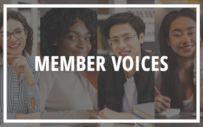
Many emerging professionals are turning to community colleges, vocational schools, and technical bootcamps to gain marketable skills.

An employer looking to set up a “campus champion” program as an element in its campus recruiting efforts turned to colleagues in the NACE Community for ideas on staffing, the responsibilities and expectations of the program, and the guidelines for campus engagement.

Uncertainty surrounds the use of artificial intelligence among university relations and recruiting professionals and, to a lesser extent, among career services practitioners.

Ellucian’s internship toolkits are intended to enhance the employee experience, while providing interns and their managers with key information and resources.

Expert and author Tony Byers cites research confirming that there are substantial benefits associated with having a diverse and inclusive workplace.

Collaboration among campus offices is a critical aspect in supporting students with disabilities during their search for employment.

Key aspects of building an effective neurodiverse hiring program are having a sustained supply of candidates and getting buy in from within.

There is a disconnect between students’ use of employer websites and their perception of the usefulness of those sites. Here’s why and how to fix it.

The Stony Brook Center for Remote Internships & Experiential Learning provides practical resources for employers operating remotely during the pandemic and beyond.

Some universities and colleges require third-party recruiters to reveal the name of the organization they are recruiting for.

Empower Retirement is moving away from assessing candidates for “culture fit” by aligning values and providing hiring managers with interview questions and language.

The percentages of career centers offering virtual career fairs and employers taking part in them has climbed steeply this fall.

Students may ask specific questions to assess your organization’s commitment to diversity, equity, and inclusion. Be prepared to answer them.

Research conducted by Mary Scott reveals that students are far more likely to use laptops than smartphones to complete key tasks throughout the recruiting process.
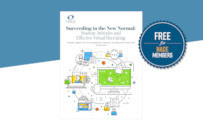
This NEW publication from NACE, Succeeding in the New Normal: Student Attitudes and Effective Virtual Recruiting, provides recommendations and insights, based on research and qualitative interviews with students, for effective virtual recruiting strategies and practices. Download your FREE copy today.

Long-promoted as a viable replacement for employers’ physical presence on campus, virtual career fairs had not gained significant traction prior to COVID-19.

Having a formal policy helps the team in the University of Oregon’s career center team with consistency when considering postings from employers seeking unpaid interns.

Students consider personal social media to be undesirable as a recruitment channel, whereas they view LinkedIn as professional online networking.

More than 40% of employers are planning to hold a hybrid internship program this summer. Also, the highest percentage prefer to attend both in-person and virtual career fairs.

The New College of Florida’s SMAH Internship Program has a twist in its approach that distinguishes it from other programs that fund students’ unpaid internships.

Can building authentic relationships—the very essence of effective recruiting—be replicated digitally? There are steps employers can take to personalize the student experience.

Cultural intelligence may be the most important individual area of change for organizations that want to bolster their recruitment and retention of culturally diverse individuals.

It is important for employers to consider the language they use because language can be loaded and have different meanings for different people.

Most career services offices plan to hold both in-person and virtual career fairs this fall, but many employers expect to hold their own virtual events.

This fall, the majority of employers will be hosting their own virtual recruiting events, such as Zoom sessions, virtual tours, and virtual career fairs.

College career services offices have changed the ways they engage employers and students from historically marginalized groups during the COVID-19 pandemic.

The biggest challenge with “professionalism” is ensuring that all candidates and employees understand what it means within the context of the organization and their specific job function.

In response to the ongoing COVID19 pandemic, employers are most commonly offering a hybrid internship program this summer.

Many employers have embraced the idea of authenticity at work, but career services must work with students to anticipate and navigate challenges should these employer efforts still fall short.
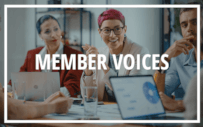
Many employers encourage employees to bring their “authentic” selves to work, but it should ultimately be up to the employee to determine how much of themselves to share.
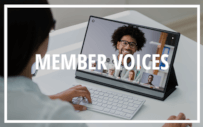
After the pandemic forced major changes to recruitment and talent acquisition, the question of what changes were temporary and which are here to stay remains.

Many employers that shifted their internship programs to virtual during the pandemic plan to make virtual assignments part of their internship programs in the future.

While the COVID-19 pandemic caused many adjustments to the ways career services offices operate, they did not make substantial changes to their employer relations strategy.

To address and better understand racial injustice and the needs of historically marginalized groups, career centers are providing more professional development for their staff.

At this early juncture in NACE’s current quick poll, it seems that there is still progress for employers to make in addressing racial injustice and the needs of historically marginalized groups.
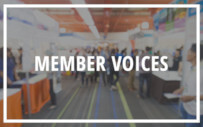
While many schools have seen fewer students attend both virtual and in-person career fairs, schools must consider other options to foster employer-student relationships.

Recruiting, onboarding, and retaining employees are not one-size-fits-all processes and there are challenges throughout. This is especially true for neurodiverse students.

URR functions and career services operations have received increased funding and resources to address racial injustice and the needs of historically marginalized groups, just at different paces.

To get the best results when recruiting and hiring neurodiverse candidates, employers need to be flexible, supportive, and willing to make accommodations.
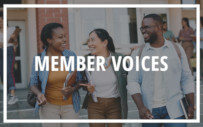
When working with employer partners, career services teams must keep in mind that career centers are not staffing agencies and student needs must come first.

NACE members share their personal thoughts on resume professional summary statements and what information, if any, should be included by students seeking employment after graduation.

Work-based learning opportunities can be great ways for students with disabilities to gain valuable professional experience while preparing for their postgraduation careers.

Research indicates that there are detrimental effects for on hiring for students graduating during a recession from a less-selective university.
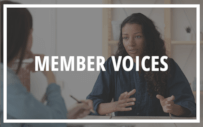
As students prepare their resumes and practice interviews for internships and postgraduation employment, it is important to remember that failures can be as important as successes.
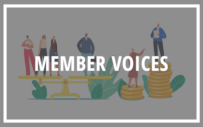
Increasing salary transparency in general and including information on potential payroll deductions can go a long way towards a more equitable work environment.